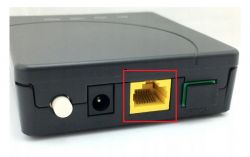I think you've gone too fast in this discussion

An ONT is one thing and a router is another. While no operator will allow ONT to be replaced with one of their own for fear of destabilizing the transmission network, and there is some truth in this because people can do various things, a router is a device typically "behind the operator's transmission network" and "configurable to the customer's expectations", therefore the operator should not prohibit its replacement. The operator's router is a mass device for a typical layman, and for a typical layman it is enough and there is no need to change it. However, there are more aware users who know about networks that use more advanced functions of a VPN router, advanced firewalls, various methods of routing, traffic control, etc., and in such a case, replacing the router is necessary. The operator cannot block the replacement of the router. I would divide operators into more resistant and less resistant ones, and sometimes they are problem-free. This was my case, the operator was trouble-free (Netia), I called the Plus customer service center (my virtual operator), told them what I wanted and in two minutes I had an SMS with PPPoE logins for my router (the lady from Plus had to call the lady from Netia - as I think

). Luckily, I received the devices (ONT and router) separately, so I just had to unplug the operator's router and connect my own, enter the logins and it started (I didn't mess with the ONT because there was no point). The situation is worse in the case of customers who receive a kombo, then they have to return the kombo and wait for a stand-alone ONT, and there is greater resistance because it requires several actions on the part of the operator. Therefore, at the stage of ordering the service, it is worth paying attention to the fact that you are planning your own router and expect an independent ONT, often the answer is positive and the logins are already included in the contract. I believe that many problems come from ignorance of the topic, both by customers and people working in customer service, e.g.: a customer calls and says that he wants to exchange this black box for another one because a friend has another one and it works great - well, sorry, he will hear " it's not possible". However, if he says "I have my own router, well suited to my needs, I would like to continue using it, I will ask for logins to adapt it" and finds a competent person, the operation will take a few minutes and everyone will be satisfied.



